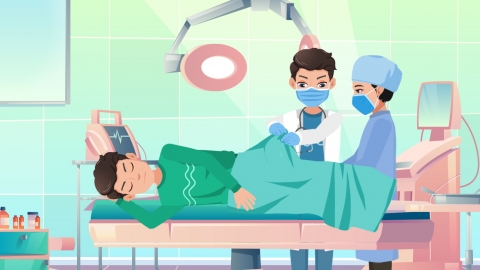What to do if anal fissure recurs after surgery
Recurrence after anal fissure surgery can be managed through enhanced local care, improved bowel habits, dietary adjustments, standardized medication use, and optimized lifestyle habits. These measures can effectively relieve symptoms and promote wound healing. If severe pain, frequent bleeding, or prolonged non-healing of the wound occurs after recurrence, prompt medical attention is recommended.
1. Strengthen local care: Perform warm water sitz baths 1–2 times daily for 15 minutes each to clean the anal area and improve blood circulation. After bowel movements, gently wipe with soft toilet paper to avoid friction on the wound, and keep the anal area dry to reduce the risk of infection.
2. Improve bowel habits: Avoid constipation and diarrhea. Use stool softeners or mild laxatives when constipated. Do not strain excessively or spend prolonged time on the toilet; limit defecation time to within 5 minutes to prevent re-tearing of the wound.

3. Adjust diet: Increase intake of fiber-rich foods such as vegetables, fruits, and whole grains (e.g., celery, apples, oats). Drink 1500–2000 ml of water daily to increase stool bulk and reduce irritation to the wound during bowel movements.
4. Standardize medication use: Apply prescribed topical ointments or suppositories that promote wound healing, use local analgesics to relieve pain, and take anti-infective medications if signs of infection appear. Follow the full course of treatment as directed to support recovery.
5. Optimize lifestyle habits: Avoid prolonged sitting or standing; get up and move for 5–10 minutes every hour. Wear loose, breathable cotton underwear instead of tight, non-breathable garments to reduce pressure and friction around the anus.
In daily life, perform gentle anal relaxation exercises under medical guidance and avoid strenuous physical activity. Maintain a regular sleep schedule, avoid staying up late, and keep emotions stable to minimize physiological stress that may impair wound healing.




